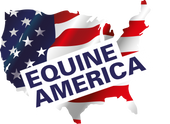What To Look For When Choosing Supplements For Your Horse?

By Deborah Lucas MSc.Eq.S.,CBiol., R.Nutr.
New research has provided us with a better understanding of the nutrient requirements of horses and ponies – in other words- what they need from their feed to stay happy, healthy, and enjoying life!
There are many circumstances that may change those needs for example increased workload, travelling, competitions, old age, and certain health conditions including joint and muscle stiffness, post viral recovery, respiratory challenges, poor quality hooves, or even over-excitability or nervous behaviour - and may benefit from support from increased levels of key nutrients. Supplements allow horse owners to modify their individual horses diet accordingly.
Supplements can be divided into two broad categories:

Broad Spectrum Supplements - to meet basic everyday requirements.
Targeted Supplements - to meet increased or additional needs for a specific reason.
Broad Spectrum supplements
All horses and ponies should receive a forage-based diet whether it be from pasture, or preserved forage. Some may also need additional energy provided from concentrate feeds, to meet requirements for work, growth, breeding, or to maintain condition.
However, whilst most concentrate feeds are fortified with minerals and vitamins some of the levels of key micronutrients may not meet the horse’s requirements.
UK pastures (and therefore hay/haylage) are low in important minerals, including selenium, copper and zinc, and may also not meet requirements. Therefore, for those with no or low concentrate feed diets, it’s important to add a broad-spectrum mineral and vitamin supplement to ensure a balanced diet and maintain general health and wellbeing. These are available in powder, liquid and pelleted forms to suit individual preferences and circumstances.
Some broad-spectrum supplements have added pre and probiotics designed to support the digestive system in horses and help maintain a healthy hindgut microbiome.
Salt is needed by all horses and ponies, and can be provided from a lick. Horses and ponies who work harder and sweat heavily may need an electrolyte supplement to replace salts lost in sweat.
Targeted supplements
Whilst there are many categories of supplements designed to help particular nutritional needs, perhaps the most commonly used are those supporting joint health, respiratory challenges, and those designed to help manage nervous or excitable behaviour.
Supplements to support joint health and comfort
Hard working and older horses and ponies will have varying degrees of natural wear and tear to their joints which can affect their ability to work or move comfortably. Providing key nutrients which are important in joint health, such as building blocks for cartilage repair, including glycine, manganese, glucosamine, collagen, chondroitin, and hyaluronic acid (HA) will help horses and ponies to maintain an extended working life, or comfortable retirement.
Many joint supplements contain ingredients such as MSM, turmeric, Boswellia and yucca. These are thought to have significant antioxidant properties to help support joint and muscle comfort.
Respiratory supplements:
Stabled horses and ponies are subjected to respiratory challenges from fungal spores and dust which can affect respiratory function. Some may struggle with pollen, and this too can affect breathing and performance. Respiratory aids provide nutritional support to help maximise airflow, often include ingredients know for their antioxidant properties, as well as providing support for the immune system. When selecting a respiratory supplement look out for supplements containing eucalyptus, menthol, echinacea, garlic, nettle and astragalus.
Calmers: to help manage anxious behaviour or over-excitability:
Horses and ponies are “fright and flight” animals, they can react/over-react to new or challenging situations. Sometimes a lack of key nutrients such as the mineral Magnesium can make this worse. A magnesium deficiency can cause nerve and neuro-muscular excitability, resulting in a stressed and anxious horse. Other important nutrients found in many calmers include calcium, which works closely with magnesium, and thiamine or Vitamin B1.
Take home messages:
When choosing a supplement, check the manufacturer has the necessary industry quality certifications confirming that the product has been made using the highest quality standards in both feed safety and control of contaminants.
Look for labels where ingredients are listed individually, as required by law, and not as “plant or botanical extracts” – you need to know what you are feeding!
Supplements are not miracle workers, but can help in certain circumstances. Do your research – most companies have excellent helplines by phone and/or LiveChat options for you to discuss your particular situation, and remember that what suits one horse may not work for another – they are all individuals!

